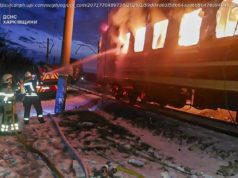The lander operated by NASA and built by scientists in the U. S., France and Germany touched down in the vast, red expanse just before 3 p.m. Eastern on Monday
For the eighth time ever, humanity has achieved one of the toughest tasks in the solar system: landing a spacecraft on Mars.
The InSight lander, operated by NASA and built by scientists in the U. S., France and Germany, touched down in the vast, red expanse of Mars’ Elysium Planitia just before 3 p.m. Eastern Monday.
There it will operate for the next two Earth years, deploying a seismometer, a heat sensor and radio antenna to probe the Red Planet’s interior. Scientists hope that InSight will uncover signs of tectonic activity and clues about the planet’s past. Those findings could illuminate how Mars became the desolate desert world we see today.
Mission control at the Jet Propulsion Laboratory in Pasadena, California, erupted in laughter, applause, hugs and tears as soon as the lander touched down.
“That was awesome,” one woman said, wiping her eyes and clasping her colleague’s hand. A few minutes later, a splotchy red and brown image appeared on the control room’s main screen — InSight’s first photograph from its new home.
Just getting to the surface of Mars is no mean feat
“This thing has a lot more to do,” said entry, descent and landing systems engineer Rob Grover. “But just getting to the surface of Mars is no mean feat.”
The interminable stretch from the moment a spacecraft hits the Martian atmosphere to the second it touches down on the Red Planet’s rusty surface is what scientists call “the seven minutes of terror.”
Landing a spacecraft on Mars is as difficult as it sounds. More than half of all missions don’t make it safely to the surface. Because it takes more than seven minutes for light signals to travel 100 million miles to Earth, scientists have no control over the process. All they can do is program the spacecraft with their best technology and wait.
The tension was palpable Monday morning in the control room at JPL, where InSight was built and will be operated. At watch parties around the globe — NASA’s headquarters in Washington, the Nasdaq tower in Times Square, the grand hall of the Museum of Sciences and Industry in Paris, a public library in Haines, Alaska, — legs jiggled and fingers were crossed as minutes ticked toward the beginning of entry, descent and landing.
At about 11:47 a.m., engineers received a signal indicating InSight had entered the Martian atmosphere.






